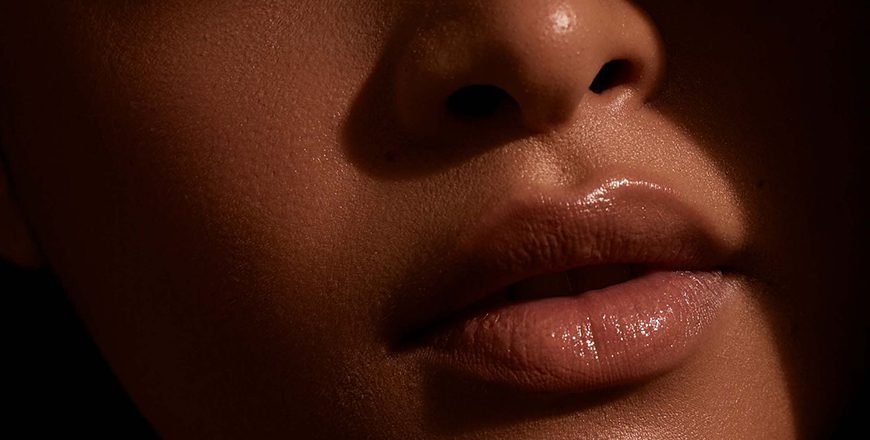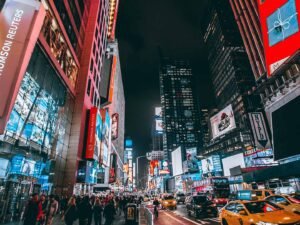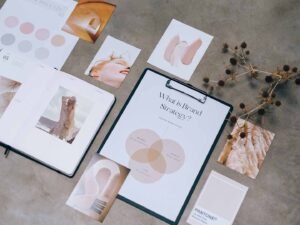The Philosophy of Photography | The All You Need Professional Photography Course
- Description
- Curriculum
- Reviews
About the course
You’re here! I am very happy that you’ve made the decision to purchase this professional photography course that I have titled the “Philosophy of Photography”.
Why this name? Well, the word philosophy is defined as, “a way of thinking about the world, the universe, and society” (Wikipedia). In this course, I want to introduce to you some ways of thinking about photography so you can eventually develop your own thought process about the craft. The goal is to get you to think of photography in a deeper way using the science and the art behind it so you can implement it in your work and create imagery that stands out.
I will teach you as much of the necessary theory as I can while also showing you practical examples of how the theoretical principles of photography are applied to a practical workflow.
Photography is an art and a science; knowing how to bring the two together will benefit you in the long run.
We will start at the basics and gradually advance to more advanced topics. I don’t think it will be possible for me to write about all there is about photography (or all I know for that matter) but I will make sure I educate you on all the important aspects of the craft whilst directing you to places where you can get more information if you want to supplement this courses’ content.
In this course you will learn about:
- The History of Photography
- The Elements of Photography
- The Exposure Triangle
- Genre & Portfolio
- The Influence of Light and Colour
Photography is a very fulfilling craft and it often leads to other, more related disciplines like film. Having done film studies, I will introduce film concepts where necessary, so you get a bit of a peek into the world of film in case you want to use it.
-
1How the course is broken downText lesson
Here is what to expect from this course. As you will see, we will cover as much as possible but only focusing on the knowledge you will actually use.
We will start at the basics and gradually advance to more advanced topics. I don’t think it will be possible for me to write about all there is to know about photography (or all I know for that matter) but I will make sure I educate you on all the important aspects of the craft whilst directing you to places where you can get more information if you want to supplement this courses’ content.
-
2My background: Who is Alroy NdhlovuText lessonThis lesson is locked because you haven't completed the previous one yet. Finish the previous lesson to unlock this one.
In this lesson, you will get to know a little more about me, your trainer. Learn about how my journey started, how it progressed and about how you can get to where I am and better in a shorter time.
-
3Why this course?Text lessonThis lesson is locked because you haven't completed the previous one yet. Finish the previous lesson to unlock this one.
In this lesson I will highlight a few reasons why I feel you should take this course.
This course is special because it takes all the important things I’ve learnt and puts them all in one place. You won’t need to go through the same confusion I went through sifting through all the information out there. What this course cannot do I will reference to other content that will fill in the blanks.
-
4A few words of adviceText lessonThis lesson is locked because you haven't completed the previous one yet. Finish the previous lesson to unlock this one.
The main goal of this course is to transform your thinking.
Don’t expect this course to be easy. I will make sure I am holding your work up against high international standards. This is how I learnt and why I’ve grown so fast. Trust me, you’ll thank me later.
-
5Defining photographyText lessonThis lesson is locked because you haven't completed the previous one yet. Finish the previous lesson to unlock this one.
In this lesson we try to define photography and look into how it can mean something different to all of us.
The word “photography” actually has its roots from the Greek language where “photo” (phos) means “light” and “graphy” (graphê) means to draw. So together they mean “drawing with light”.
-
6A brief history of photographyText lessonThis lesson is locked because you haven't completed the previous one yet. Finish the previous lesson to unlock this one.
Basically, from all my studies of photography, photography is basically the duplication of the scientific process of vision but also the art of carefully choosing how you perceive things. It is both a scientific and artistic discipline.
This is the basis our forefathers used to create the whole process of photography then and it is the same basis we use in its evolution.
-
7The importance and use cases of photographyText lessonThis lesson is locked because you haven't completed the previous one yet. Finish the previous lesson to unlock this one.
All you need to do is look around you, right where you are, and chances are there is an image of something there, that thing was purchased with money, which made some individual or company richer.
-
8Elements that make up photographyText lessonThis lesson is locked because you haven't completed the previous one yet. Finish the previous lesson to unlock this one.
Be fully immersed in the process and keep your eyes on a noble price. Everything else will work out. A lot of my successes were a result of grace, the universe listening to my heart and coming through for me in unexpected ways.
-
9Success Stories to Motivate YouText lessonThis lesson is locked because you haven't completed the previous one yet. Finish the previous lesson to unlock this one.
Here are a few case studies of photographers that have achieved great success in the industry.
I hope you are as excited to learn more as I am about taking you through this journey. You will not regret it. I can promise you that.
-
10ConclusionText lessonThis lesson is locked because you haven't completed the previous one yet. Finish the previous lesson to unlock this one.
In the next module, we will dive into the infamous "Exposure Triangle".
-
11An Eye for the ArtAssignmentThis lesson is locked because you haven't completed the previous one yet. Finish the previous lesson to unlock this one.
-
12A brief introductionText lessonThis lesson is locked because you haven't completed the previous one yet. Finish the previous lesson to unlock this one.
In this module, we will learn about the all important exposure triangle...
-
13"S" is for "Shutter Speed"Text lessonThis lesson is locked because you haven't completed the previous one yet. Finish the previous lesson to unlock this one.
In this lesson, we are going to learn about shutter speed.
Shutter speed is perhaps the simplest of all the elements of the exposure triangle to understand.
Shutter speed is defined as the time in which the camera sensor is exposed to light as a result of the speed at which the shutter opens and closes. This speed is typically measured in seconds and fractions of a second.
-
14"A" is for "Aperture"Text lessonThis lesson is locked because you haven't completed the previous one yet. Finish the previous lesson to unlock this one.
In this lesson, we will learn about aperture, one of the elements of the exposure triangle.
Aperture describes how open or closed the lens’ iris is and how much light is allowed to go through the lens and onto the sensor.
-
15"I" for "ISO"Text lessonThis lesson is locked because you haven't completed the previous one yet. Finish the previous lesson to unlock this one.
In this lesson, we are going to learn about a cameras ISO setting.
In the most basic terms, ISO involves controlling the camera sensor's sensitivity to light.
In reality, you aren’t controlling the sensitivity of the sensor but rather the amount of post-gain applied to the signal. There is definitely a lot more science behind this explanation, but the purpose of this course is to teach you the information you will use daily.
-
16Putting it all togetherText lessonThis lesson is locked because you haven't completed the previous one yet. Finish the previous lesson to unlock this one.
Now that you’ve learnt about the foundational principles of the exposure triangle, it is now time that we talk about how we would use this knowledge in a real-world scenario.
-
17Realistic factors that affect exposureText lessonThis lesson is locked because you haven't completed the previous one yet. Finish the previous lesson to unlock this one.
Your camera can either limit you or empower you.
Accessories are a big part of photography. You can live without them but you can do so much better with them. At times, the success or failure of your vision will be determined by the accessories you have.
-
18Real world scenariosText lessonThis lesson is locked because you haven't completed the previous one yet. Finish the previous lesson to unlock this one.
To wrap up let's go through a scenario or two of how you’d manoeuvre the exposure triangle to get the exposure you want.
-
19Exposure Triangle Module Assessment6 questionsThis lesson is locked because you haven't completed the previous one yet. Finish the previous lesson to unlock this one.
Take time to answer these questions on the exposure triangle to test your knowledge.
-
20Applying the Exposure Triangle When Creating ImagesAssignmentThis lesson is locked because you haven't completed the previous one yet. Finish the previous lesson to unlock this one.
-
21A brief introductionText lessonThis lesson is locked because you haven't completed the previous one yet. Finish the previous lesson to unlock this one.
Discover how light and colour are essential elements in the world of photography. Learn how to create the best images by understanding how these elements work. Let’s get started with light…
-
22The qualities of lightText lessonThis lesson is locked because you haven't completed the previous one yet. Finish the previous lesson to unlock this one.
Light has several characteristics that play a significant role in photography. In this lesson, we learn about what these characteristics are.
-
23Conversation about light contrastText lessonThis lesson is locked because you haven't completed the previous one yet. Finish the previous lesson to unlock this one.
The contrast in lighting refers to the difference in brightness and darkness in an image as influenced by the scene's light versus shadow ratio. We will explore that in this lesson.
-
24Colour temperature/light colourText lessonThis lesson is locked because you haven't completed the previous one yet. Finish the previous lesson to unlock this one.
In this lesson, we talk about how light colour and colour temperature affect your images.
-
25Wrapping it upText lessonThis lesson is locked because you haven't completed the previous one yet. Finish the previous lesson to unlock this one.
Light and colour can influence your images in several ways. A good knowledge of all these influences will help you become a better photographer.
-
26What Do You Know About Light and its Colour5 questionsThis lesson is locked because you haven't completed the previous one yet. Finish the previous lesson to unlock this one.
Now that you have learnt about how light and colour influence an image, take this short quiz to evaluate how much you really know.
-
27Creating an Image Using a Quality of LightAssignmentThis lesson is locked because you haven't completed the previous one yet. Finish the previous lesson to unlock this one.
-
28Cameras & EquipmentText lessonThis lesson is locked because you haven't completed the previous one yet. Finish the previous lesson to unlock this one.
In this chapter, we will discuss the various options you have when it comes to cameras and other photographic equipment. This module was saved for later in the course intentionally because it is important to note that the fanciest gear isn’t as essential as the industry makes it out to be.
-
29Types of camerasText lessonThis lesson is locked because you haven't completed the previous one yet. Finish the previous lesson to unlock this one.
Cameras come in all shapes and sizes. Some are pretty generic and some come with special built-in features that set them apart from others.
-
30LensesText lessonThis lesson is locked because you haven't completed the previous one yet. Finish the previous lesson to unlock this one.
Now that we’ve taken a look at the different types of cameras at our disposal, we now move on to learning about lenses; very essential pieces of equipment.
-
31Lighting Equipment & Types of LightText lessonThis lesson is locked because you haven't completed the previous one yet. Finish the previous lesson to unlock this one.
There is so much in the form of lighting equipment that I won’t even attempt to mention it all. I don’t think I ever can because, despite the knowledge I have, there’s even more that I am yet to learn. Lighting is a whole course on its own!
-
32ModifiersText lessonThis lesson is locked because you haven't completed the previous one yet. Finish the previous lesson to unlock this one.
Modifiers are another world on their own. So much out there for so many reasons and use cases. In my experience, most of the stuff is either repetition of other things that exist or are things you can easily DIY.
-
33Creating a vision board of your dream equipmentAssignmentThis lesson is locked because you haven't completed the previous one yet. Finish the previous lesson to unlock this one.
-
34What artistic path will you take?Text lessonThis lesson is locked because you haven't completed the previous one yet. Finish the previous lesson to unlock this one.
I think one thing is clear at this point- it is the fact that photography is a very broad discipline. As a result of this, you will find it in your best interest to be able to focus on a particular niche, a genre that you can grow in.
-
35The influences of the genre you pick?Text lessonThis lesson is locked because you haven't completed the previous one yet. Finish the previous lesson to unlock this one.
There are a couple of things that will influence your decision on what kind of photographer you will want to become. In this lesson, we will explore some of these things.
-
36Genres in photographyText lessonThis lesson is locked because you haven't completed the previous one yet. Finish the previous lesson to unlock this one.
There are many more genres out there, some are very niche or are subcategories. In the end, it is all about learning the nuances that uniquely identify each genre. Most of the time your skills will overlap.
-
37Building a portfolioText lessonThis lesson is locked because you haven't completed the previous one yet. Finish the previous lesson to unlock this one.
Though it may be tempting to want to be a jack of all trades I would not advise you to go down this route. As I said sometimes earlier, you want to stand out from the rest and this often means focusing on one, or a few related genres and then building from there.
-
38Creating in your ideal genreAssignmentThis lesson is locked because you haven't completed the previous one yet. Finish the previous lesson to unlock this one.
-
39Are you an artist or are you a photographer?Text lessonThis lesson is locked because you haven't completed the previous one yet. Finish the previous lesson to unlock this one.
There are so many people claiming to be photographers out there. For the most part, this is because they feel that having a camera, being able to press the shutter button while working with some basic light setups and doing standard editing is enough. In this lesson, will explore how we can go beyond just pressing a shutter button to become true artists.
-
40Educate yourselfText lessonThis lesson is locked because you haven't completed the previous one yet. Finish the previous lesson to unlock this one.
The biggest characteristic trait you can develop in yourself in that of curiosity. The more curious you are about the things that matter, the more you will seek out the answers to your questions.
-
41Previsualization and MoodboardsText lessonThis lesson is locked because you haven't completed the previous one yet. Finish the previous lesson to unlock this one.
Mood boards are simply visual representations of the whole pre-visualisation process. You can use a mood board to visually show the equipment, locations, models, colours, props and other ideas you have to bring the whole project to fruition.
-
42CompositionText lessonThis lesson is locked because you haven't completed the previous one yet. Finish the previous lesson to unlock this one.
Composition is a very important element of photography that many photographers often ignore. You will not go far by simply pointing and shooting. In this lesson, we will explore how to create images with better composition.
-
43Other Important Considerations: Location, Props, TeamText lessonThis lesson is locked because you haven't completed the previous one yet. Finish the previous lesson to unlock this one.
Even though you can probably succeed in creating images as a one-person band, in reality, this is seldom the case if you really want to produce outstanding work. We'll explore this in this lesson.
-
44Create Your MasterpieceAssignmentThis lesson is locked because you haven't completed the previous one yet. Finish the previous lesson to unlock this one.





